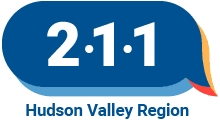
A mother breastfeeding her child.
Breastfeeding is a natural process, but it’s not always easy. Many mothers face challenges, especially in the early weeks. This guide addresses common issues and offers practical solutions.
1. Difficulty with Latch
Problem: Baby struggles to latch onto the breast properly.
Solutions:
- Ensure proper positioning: Try different holds like cradle, cross-cradle, or football hold.
- Shape your breast: Gently compress your breast to make it easier for baby to latch.
- Encourage wide mouth: Tickle baby’s lips with your nipple to encourage a wide mouth opening.
- Seek help: Consult a lactation consultant for personalized guidance.
2. Sore or Cracked Nipples
Problem: Nipples are painful, may be cracked or bleeding.
Solutions:
- Check latch and positioning: Ensure baby is latching deeply, covering the areola.
- Apply breast milk: Express a few drops and apply to nipples after feeding.
- Use nipple cream: Apply lanolin-based cream to soothe and protect.
- Air dry: Let nipples air dry after feeding.
- Use breast shells: These protect sore nipples between feedings.
3. Engorgement
Problem: Breasts feel overly full, hard, and painful.
Solutions:
- Frequent feeding: Nurse or pump every 2-3 hours.
- Reverse pressure softening: Gently press around the areola to reduce swelling.
- Cold compresses: Apply cold packs after feeding to reduce swelling.
- Warm shower: Let warm water flow over breasts before feeding to encourage milk flow.
4. Low Milk Supply
Problem: Concern about not producing enough milk.
Solutions:
- Increase frequency: Nurse or pump more often to stimulate production.
- Power pumping: Pump for 10-20 minutes every hour for several hours.
- Stay hydrated: Drink plenty of water.
- Eat well: Ensure a balanced diet with adequate calories.
- Consider galactagogues: Foods like oatmeal or fenugreek may help increase supply.
5. Mastitis
Problem: Breast infection causing redness, pain, and flu-like symptoms.
Solutions:
- Continue nursing: Keep breastfeeding or pumping to prevent engorgement.
- Rest and fluids: Get plenty of rest and stay hydrated.
- Warm compresses: Apply before feeding to encourage milk flow.
- Massage: Gently massage any lumps while feeding.
- Seek medical help: Contact your healthcare provider, as antibiotics may be necessary.
6. Thrush
Problem: Yeast infection in baby’s mouth or on mother’s nipples.
Solutions:
- See a doctor: Both mother and baby may need antifungal treatment.
- Hygiene: Wash hands frequently, sterilize pump parts and bottles.
- Dietary changes: Reduce sugar and yeast in diet.
- Probiotics: Consider probiotic supplements for both mother and baby.
7. Overactive Letdown
Problem: Milk comes out too fast, causing baby to gulp or choke.
Solutions:
- Position change: Try laid-back nursing or side-lying position.
- Block feeding: Use one breast per feeding to reduce flow.
- Express before feeding: Hand express or pump briefly before nursing.
Remember, every breastfeeding journey is unique. If challenges persist, don’t hesitate to reach out to a lactation consultant or your healthcare provider for personalized support and advice.
Help from Local Organizations in Westchester County
Here’s a list of organizations and resources in Westchester County that can help parents learn about and get support for breastfeeding:
- Westchester County Department of Health: https://health.westchestergov.com/
- Offers breastfeeding support and education programs
- La Leche League of Westchester: https://lllny.org/local-groups/westchester/
- Provides mother-to-mother support, encouragement, and education
- Hudson Valley Breastfeeding Coalition: https://hvbreastfeeding.org/
- Offers resources, education, and support for breastfeeding families in the Hudson Valley region
- Jewish Community Services (WJCS): https://www.wjcs.com/
- Provides parent support programs, including breastfeeding assistance
- Lower Hudson Valley Perinatal Network: http://www.lhvpn.net/
- Offers resources and support for pregnant women and new parents, including breastfeeding information
Do you have more questions or would you like to discuss additional resources with someone? Call 211 or text your zip code to #898211



